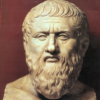Scorn for wealth among philosophers was at bottom a desire to avenge themselves against fate, by despising the very things of which she deprived them. It was a strategic way of avoiding the humiliations of poverty, a roundabout way of gaining an esteem they could not gain through wealth.
[Le mépris des richesses était dans les philosophes un désir cache de venger leur mérite de l’injustice de la fortune par le mépris des mêmes biens dont elle les privait; c’était un secret pour se garantir de l’avilissement de la pauvreté; c’était un chemin détourné pour aller à la considération qu’ils ne pouvaient avoir par les richesses.]
François VI, duc de La Rochefoucauld (1613-1680) French epigrammatist, memoirist, noble
Réflexions ou sentences et maximes morales [Reflections; or Sentences and Moral Maxims], ¶54 (1665-1678) [tr. Kronenberger (1959)]
(Source)
This maxim appeared in the first edition, with various small modifications across subsequent editions.
(Source (French)). Alternate translations:
The contempt of wealth, in the Philosophers, was a secret desire of vindicating their merit, against the injustice of Fortune, by an affected slighting of those goods, whereof she depriv'd them. It was an humorous secret, which they had found out, to indemnifie themselves from the disparagement accessory to Poverty. In fine, it was a winding path, or by-way to get into that esteem, which they could not obtain by Riches.
[tr. Davies (1669), ¶170]
When the Philosophers despised Riches, it was because they had a mind to vindicate their own Merit, and take a Revenge upon the injustice of Fortune, by vilifying those Enjoyments which She had not given them: This was a secret to ward off the Contempt that Poverty brings, a kind of winding By-path to get into the Esteem of the World, and when Riches had not made them considerable, to make themselves so some other way.
[tr. Stanhope (1694), ¶55]
The contempt of riches in the philosophers was a concealed desire of revenging on Fortune the injustice done to their merit, by despising the good she denied them. It was a secret to shelter them from the ignominy of poverty ; a bye-way to arrive at the esteem they could not procure by wealth.
[pub. Donaldson (1783), ¶341; ed. Lepoittevin-Lacroix (1797), ¶54]
Contempt of riches in the old philosophers was a concealed desire of revenge, by despising the good which Fortune had denied them. It was an artful shelter from the disgrace of poverty: a by-way to arrive at that esteem which they could not procure by wealth.
[ed. Carville (1835), ¶301]
The contempt of riches among the philosophers was a hidden desire to revenge their merit for the injustice of Fortune, by contempt of the very advantages of which she deprived them. It was a secret to secure themselves from the degradation of poverty: it was a by road to arrive at that consideration which they could not obtain by riches.
[ed. Gowens (1851), ¶55]
The contempt of riches in philosophers was only a hidden desire to avenge their merit upon the injustice of fortune, by despising the very goods of which fortune had deprived them; it was a secret to guard themselves against the degradation of poverty, it was a back way by which to arrive at that distinction which they could not gain by riches.
[tr. Bund/Friswell (1871)]
The Philosophers' scorn of wealth was but their secret ambition to exalt their merit above fortune by deriding those blessings which Fate denied them. It was a ruse to shield them from the sordidness of poverty, and a subterfuge to attain that distinction which they could not achieve by wealth.
[tr. Heard (1917)]
Contempt of wealth was, among the early philosophers, due to a secret desire to vindicate their worth agaiunst the malignity of fate, by affecting to despise those very gifts of which it deprived them. It was a means of insurance against the ignominy of poverty, a round-about way of acquiring the esteem they were unable to command by the possession of wealth.
[tr. Stevens (1939)]
Philosophers have expressed their contempt for material riches; they thus reveal their wish to vindicate their merit on their fate by displaying their contempt for those gifts which fate has withheld from them; it is a secret remedy to save them from those degradations which poverty entails; it is also an indirect method for obtaining that respect which they cannot gain through wealth.
[tr. FitzGibbon (1957)]
The scorn for riches displayed by the philosophers was a secrete desire to recompense their own merit for the injustice of Fortune by scorning those very benefits she had denied them; it it was a private way of remaining unsullied by poverty, a devious path towards the high respect they could not command by wealth.
[tr. Tancock (1959)]
The contempt which philosophers professed for wealth, was but a hidden desire of getting revenge for their merit upon the injustice of Fortune, by despising those goods of which she had deprived them: it was a secret by which to protect themselves against the degradation of poverty; it was an alternate path by which to gain that consideration which they had not been able to attain through riches.
[tr. Whichello (2016)]
Quotations about:
philosopher
Note not all quotations have been tagged, so Search may find additional quotes on this topic.
Truth that has been merely learned is like an artificial limb, a false tooth, a waxen nose; at best, like a nose made out of another’s flesh; it adheres to us only because it is put on. But truth acquired by thinking of our own is like a natural limb; it alone really belongs to us. This is the fundamental difference between the thinker and the mere man of learning.
[Hingegen klebt die bloß erlernte Wahrheit uns nur an, wie ein angeseßtes Glied, ein falscher Zahn, eine wächserne Nase, oder höchstens wie eine rhinoplastische aus fremdem Fleische. Die durch eigenes Denken erworbene Wahrheit aber gleicht dem natürlichen Gliede: fie allein gehört uns wirklich an. Darauf beruht der Unterschied zwischen dem Denker und dem bloßen Gelehrten.]Arthur Schopenhauer (1788-1860) German philosopher
Parerga and Paralipomena, Vol. 2, ch. 22 “On Thinking for Oneself [Selbstdenken],” § 260 (1851) [tr. Saunders (1890)]
(Source)
Source (German). Alternate translations:
Truth that has been merely learned adheres to us like an artificial limb, a false tooth, a waxen nose, or at best like one made out of another's flesh; truth which is acquired by thinking for oneself is like a natural member: it alone really belongs to us. Here we touch upon the difference between the thinking man and the mere man of learning.
[tr. Dircks (1897)]
Truth that has merely been learnt adheres to us only as an artificial limb, a false tooth, a was nose does, or at most like transplanted skin; but a truth won by thinking for ourself is like a natural limb: it alone really belongs to us. This is what determines the difference between a thinker and a mere scholar.
[tr. Hollingdale (1970)]
... other hand, the truth acquired through our own thinking is like the natural limb; it alone really belongs to us. On this rests the distinction between the thinker and the mere scholar.
[tr. Payne (1974)]
But in my college days I discovered that nothing can be imagined which is too strange or incredible to have been said by some philosopher.
[Mais ayant appris dès le collège qu’on ne sauroit rien imaginer de si étrange et si peu croyable, qu’il n’ait été dit par quelqu’un des philosophes.]
René Descartes (1596-1650) French philosopher, mathematician
Discourse on Method [Discours de la méthode], Part 2 (1637) [tr. Cottingham, Stoothoff (1985)]
(Source)
See Cicero. (Source (French)). Alternate translations:
For having learnt from the very School, That one can imagin nothing so strange or incredible, which had not been said by some one of the Philosophers.
[tr. Newcombe ed. (1649)]
But I had become aware, even so early as during my college life, that no opinion, however absurd and incredible, can be imagined, which has not been maintained by some on of the philosophers.
[tr. Veitch (1901)]
But I had been taught, even in my College days, that there is nothing imaginable so strange or so little credible that it has not been maintained by one philosopher or another.
[tr. Haldane, Ross (1911)]
One cannot conceive anything so strange and so implausible that it has not already been said by one philosopher or another.
How few philosophers are to be found who are such in character, so ordered in soul and in life, as reason demands; who regard their teaching not as a display of knowledge, but as the rule of life; who obey themselves, and submit to their own decrees!
[Quotus enim quisque philosophorum invenitur, qui sit ita moratus, ita animo ac vita constitutus, ut ratio postulat? qui disciplinam suam non ostentationem scientiae, sed legem vitae putet? qui obtemperet ipse sibi et decretis suis pareat?]
Marcus Tullius Cicero (106-43 BC) Roman orator, statesman, philosopher
Tusculan Disputations [Tusculanae Disputationes], Book 2, ch. 4 (2.4) / sec. 11 [Marcus] (45 BC) [tr. Peabody (1886)]
(Source)
Original Latin. Alternate translations:
For where is there one Philosopher of a thousand to be found, of such a Temper and Conversation, as Reason requires? who maketh use of his Doctrine not for Ostentation of Knowledge, but a Rule of Life? who believes himself, and observes his own Precepts?
[tr. Wase (1643)]
For how few philosophers will you meet with, whose life and manners are conformable to the dictates of reason? who look on their profession, not as a means of displaying their learning, but as a rule for their practice? who follow their own precepts, and comply with their own decrees?
[tr. Main (1824)]For, how rare to find a philosopher with such morals, with a mind and life so regulated, as reason requires -- who deems his own doctrine, not a parade of science, but the rule of life -- who yields obedience to himself, and deference to his own decrees.
[tr. Otis (1839)]
For how few philosophers will you meet with, whose life and manners are conformable to the dictates of reason! who look on their profession, not as a means of displaying their learning, but as a rule for their own practice! who follow their own precepts, and comply with, their own decrees!
[tr. Yonge (1853)]
All those men who are preeminent in philosophy or politics or poetry or the other arts are clearly melancholic.
Aristotle (384-322 BC) Greek philosopher
Problems [Problemata], Book 30, Q. 1 / 953a [tr. @sentantiq (2018)]
(Source)
Possibly one of the sources of a famous misattributed Aristotle quotation by Seneca the Younger.
Alternate translation: "All those who have become eminent in philosophy or politics or poetry or the arts are clearly of an atrabilious temperament." [tr. Forster (1927)]
The problem is that the philosopher of today has lost his wonder, because wonder, in modern philosophy, is something you must not have; it is like enthusiasm in eighteenth-century England — it is very bad form.
Alan Watts (1915-1973) Anglo-American philosopher, writer
“The Relevance of Oriental Philosophy” (c. 1964)
(Source)
Collected in Eastern Wisdom, Modern Life, ch. 6 (2006).
You see, a philosopher is a sort of intellectual yokel who gawks at things that sensible people take for granted.
Alan Watts (1915-1973) Anglo-American philosopher, writer
“The Relevance of Oriental Philosophy” (c. 1964)
(Source)
Collected in Eastern Wisdom, Modern Life, ch. 6 (2006). Variant: "A philosopher is a sort of intellectual yokel who gawks at things, like existence, that ordinary people take for granted."
To ridicule philosophy, that is really to act the philosopher.
[Se moquer de la philosophie c’est vraiment philosophe.]
Blaise Pascal (1623-1662) French scientist and philosopher
Thoughts [Pensées], Article 7, #35 (1670)
Pascal's works are sorted and classified by translators in a variety of ways, so numbering is inconsistent. Alternate translations:
- "To have no time for philosophy is to be a true philosopher." [tr. Krailsheimer (2003); Series 22, #513]
- "To make light of philosophy is to be a true philosopher." [tr. Paul (1885), "Various Thoughts"; also Trotter (1958), Sec. 1, #4]
- "To ridicule philosophy is really to philosophize." [#430]
- "To ridicule philosophy is truly philosophical."
- "To mock philosophy is to philosophize truly"
- "To mock philosophy is to be a true philosopher."
The name philosopher, which meant originally “lover of wisdom,” has come in some strange way to mean a man who thinks it is his business to explain everything in a certain number of large books. It will be found, I think, that in proportion to his colossal ignorance is the perfection and symmetry of the system which he sets up; because it is so much easier to put an empty room tidy than a full one.
William Kingdon Clifford (1845-1879) English mathematician and philosopher
Quoted in A. D’Abro, The Evolution of Scientific Thought from Newton to Einstein, Part 4, ch. 37 (1927)
(Source)
D'Abro says it comes from one of Clifford's essays, but the source does not appear online.
In spite of every sage whom Greece can show,
Unerring wisdom never dwelt below;
Folly in all of every age we see,
The only difference lies in the degree.[N’en déplaise à ces fous nommés sages de Grèce,
En ce monde il n’est point de parfaite sagesse :
Tous les hommes sont fous, et, malgré tous leurs soins,
Ne diffèrenet entre eux que du plus ou du moins.]
As I have often told you, politeness and good beeding are absolutely necessary to adorn any, or all other good qualities or talents. Without them, no knowledge, no perfection whatever, is seen in its best light. The scholar, without good breeding, is a pedant; the philosopher, a cynic; the soldier, a brute; and every man disagreeable.
Lord Chesterfield (1694-1773) English statesman, wit [Philip Dormer Stanhope]
Letter to his son, #128 (9 Oct 1747)
(Source)
I have one word to say upon the subject of profound writers, who are grown very numerous of late; and I know very well the judicious world is resolved to list me in that number. I conceive therefore, as to the business of being profound, that it is with writers as with wells — a person with good eyes may see to the bottom of the deepest, provided any water be there: and often when there is nothing in the world at the bottom besides dryness and dirt, though it be but a yard and a-half under-ground, it shall pass, however, for wondrous deep upon no wiser reason than because it is wondrous dark.
Philosophy easily triumphs over past ills and ills to come, but present ills triumph over philosophy.
[La philosophie triomphe aisément des maux passés et des maux à venir; mais les maux présents triomphent d’elle.]
François VI, duc de La Rochefoucauld (1613-1680) French epigrammatist, memoirist, noble
Réflexions ou sentences et maximes morales [Reflections; or Sentences and Moral Maxims], ¶22 (1665-1678) [tr Tancock (1959)]
(Source)
(Source (French)). French variants:
La philosophie triomphe aisément des maux passés et de ceux qu’un ne sont pas prêts d’arriver; mais les maux présents triomphent d'elle.
(1665)]
La philosophie ne fait des merveilles que contre les maux passés ou contre ceux qui ne sont pas prêts d’arriver, mais elle n’a pas grande vertu contre les maux présents.
[Manuscript]
Alternate English translations:
Philosophy may easily triumph over Evils past, as also over those not yet ready to assault a man; but the present triumph over it.
[tr. Davies (1669), ¶87]
Philosophy finds it an easie matter to vanquish past and future Evils, but the present are commonly too hard for it.
[tr. Stanhope (1694), ¶23]
Philosophy easily triumphs over past and future ills; but present ills triumph over philosophy.
[pub. Donaldson (1783), "Ills" ¶242]
Philosophy easily triumphs over ills both past and future; but present ills triumph over philosophy.
[ed. Carville (1835), "Ills" ¶211]
Philosophy easily triumphs over past and future ills: but religion only triumphs over the present ones.
[ed. Carville (1835), "Philosophers" ¶303]
Philosophy triumphs easily over past, and over future evils, but present evils triumph over philosophy.
[ed. Gowens (1851), ¶23]
Philosophy triumphs easily over past evils and future evils; but present evils triumph over it.
[tr. Bund/Friswell (1871)]
Philosophy easily masters past and future ills, but the sorrow of the moment is the master of philosophy.
[tr. Heard (1917)]
Philosophy easily conquers both past and future misfortunes, but is conquered by the misfortunes of the moment.
[tr. Stevens (1939)]
Philosophy can easily triumph over past misfortunes and over those that lie ahead: but the misfortunes of the present will triumph over our philosophy.
[tr. FitzGibbon (1957)]
Philosophy triumphs with ease over misfortunes past and to come, but present misfortunes triumph over it.
[tr. Kronenberger (1959)]
Philosophy triumphs easily over past and future evils; but present evils triumph over it.
[tr. Whichello (2016)]
Philosophy, brought afresh to repute by Kant […] had soon become a tool of interests; of state interests […] The driving forces of this movement are, contrary to all these solemn airs and assertions, not ideal […] Party interests are vehemently agitating the pens of so many purer lovers of wisdom […] truth is certainly the last thing they have in mind […] Philosophy is misused, from the side of the state as tool, from the other side as means of gain […] Governments make of philosophy a means of serving their state interests, and scholars make of it a trade.
Arthur Schopenhauer (1788-1860) German philosopher
(Attributed)
(Source)
Criticizing Hegel and Hegelianism, and the latter's state-philosophy alliance. Attributed in Karl Popper, The Open Society and Its Enemies, ch. 12 (1945).
There are some philosophers who exist to uphold the status quo, and others who exist to upset it — Marx, of course, belongs to the second lot. For my part, I should reject both those as not being the true business of a philosopher, and I should say the business of a philosopher is not to change the world but to understand it, which is the exact opposite to what Marx said.
Bertrand Russell (1872-1970) English mathematician and philosopher
Interview by Woodrow Wyatt, BBC TV (1959)
Collected in Bertrand Russell's BBC Interviews (1959) [UK] and Bertrand Russell Speaks His Mind (1960) [US]. Reprinted (abridged) in The Humanist (1982-11/12), and in Russell Society News, #37 (1983-02).
Slavery was contrary to all the moral principles advocated by Plato and Aristotle, yet neither of them saw this because to renounce slavery would have meant the collapse of the life they were living.
Those who are destitute of philosophy may be compared to prisoners in a cave, who are only able to look in one direction because they are bound, and who have a fire behind them and a wall in front. Between them and the wall there is nothing; all that they see are shadows of themselves, and of objects behind them, cast on the wall by the light of the fire. Inevitably they regard these shadows as real, and have no notion of the objects to which they are due. At last, some man succeeds in escaping from the cave to the light of the sun; for the first time he sees real things, and becomes aware that he had hitherto been deceived by shadows. If he is the sort of philosopher who is fit to become a guardian, he will feel it is his duty to those who were formerly his fellow prisoners to go down again into the cave, instruct them as to the truth, and show them the way up. But he will have difficulty in persuading them, because, coming out of the sunlight, he will see shadows less clearly than they do, and will seem to them stupider than before his escape.
‘Tis not Wit merely, but a Temper which must form the Well-Bred Man. In the same manner, ’tis not a Head merely, but a Heart and Resolution which must compleat the real Philosopher.
All are lunatics, but he who can analyze his delusion is called a philosopher.
Ambrose Bierce (1842-1914?) American writer and journalist
The Collected Works of Ambrose Bierce, Vol. 8, “Epigrams” (1911)
(Source)
LEONATO: For there was never a philosopher
That could endure the toothache patiently.William Shakespeare (1564-1616) English dramatist and poet
Much Ado About Nothing, Act 5, sc. 1, l. 37ff (5.1.37-38) (1598)
(Source)
What is the first business of one who studies philosophy? To part with self-conceit. For it is impossible for any one to begin to learn what he thinks that he already knows.
Somehow or other no statement is too absurd for some philosophers to make.
[Sed nescio quo modo nihil tam absurde dici potest quod non dicatur ab aliquo philosophorum.]
Marcus Tullius Cicero (106-43 BC) Roman orator, statesman, philosopher
De Divinatione [On Divination], Book 2, ch. 58 (2.58) / sec. 119 (45 BC) [tr. Falconer (1923)]
(Source)




















